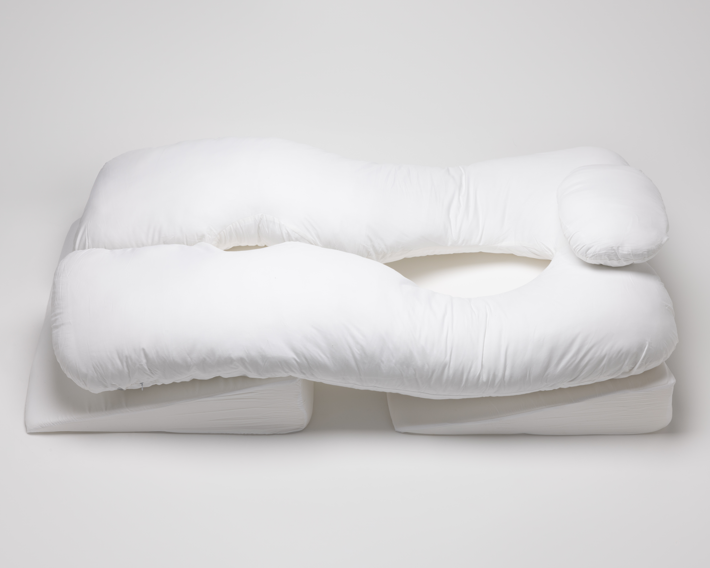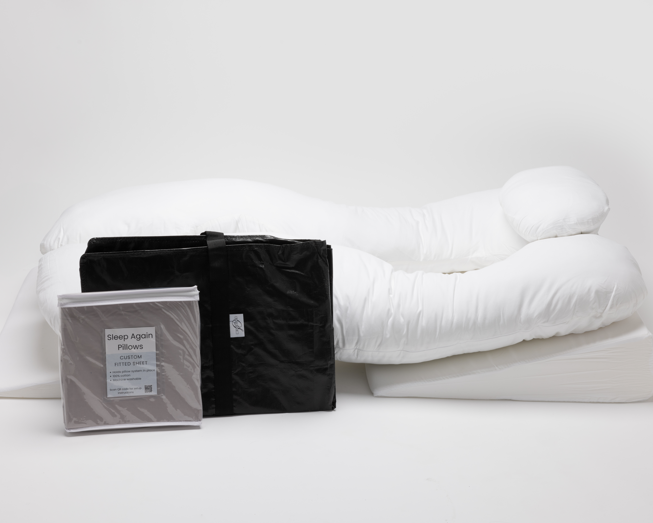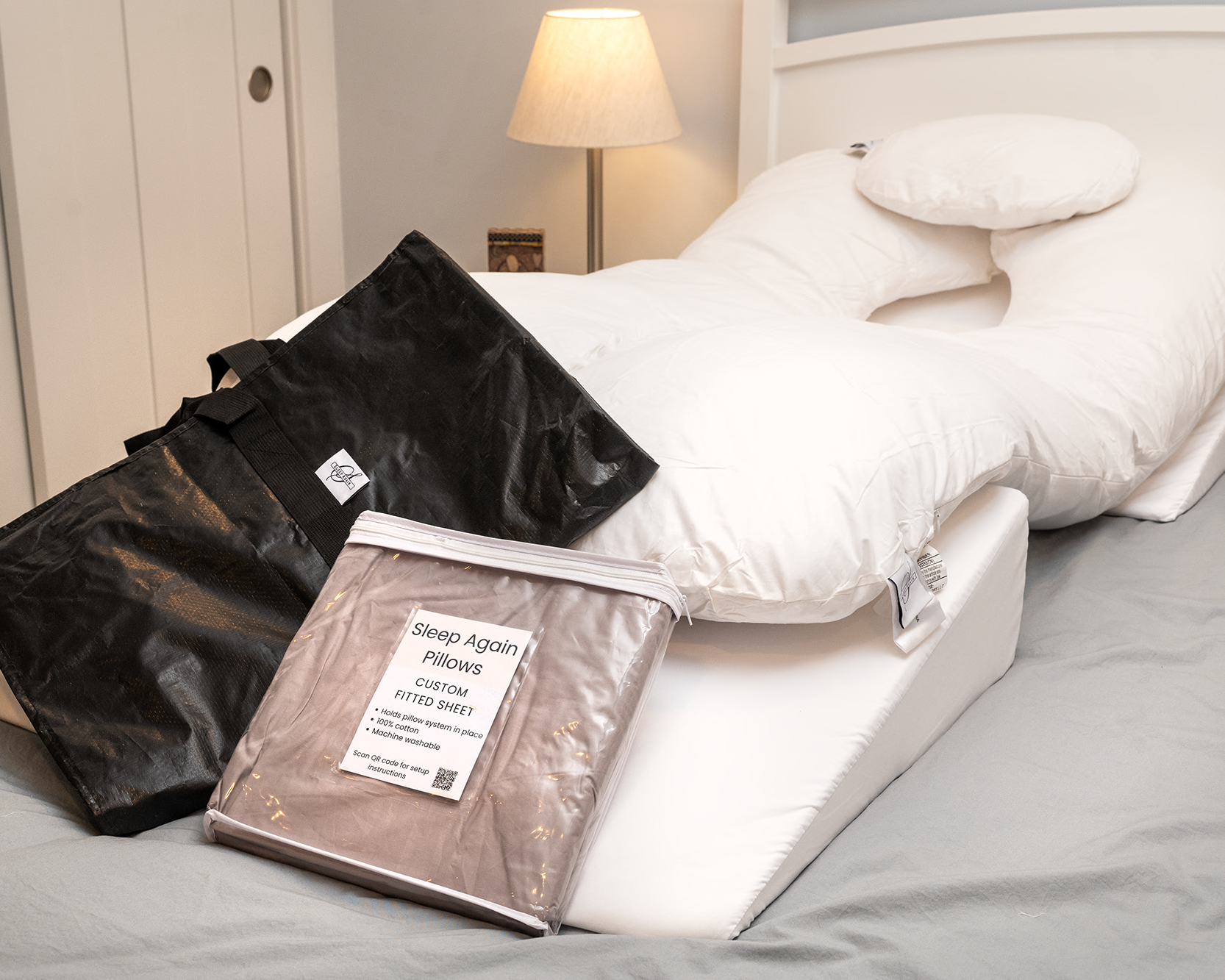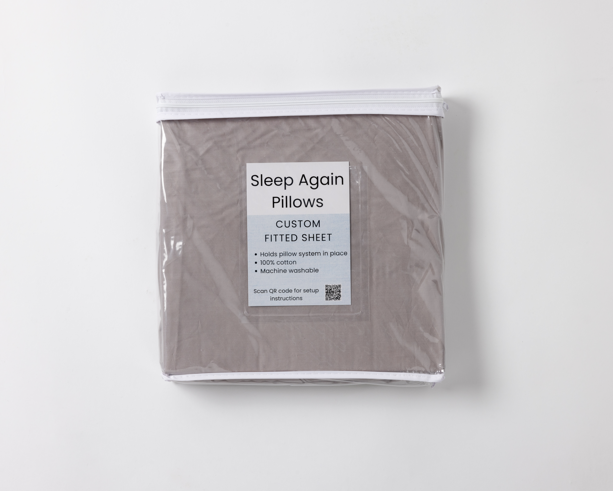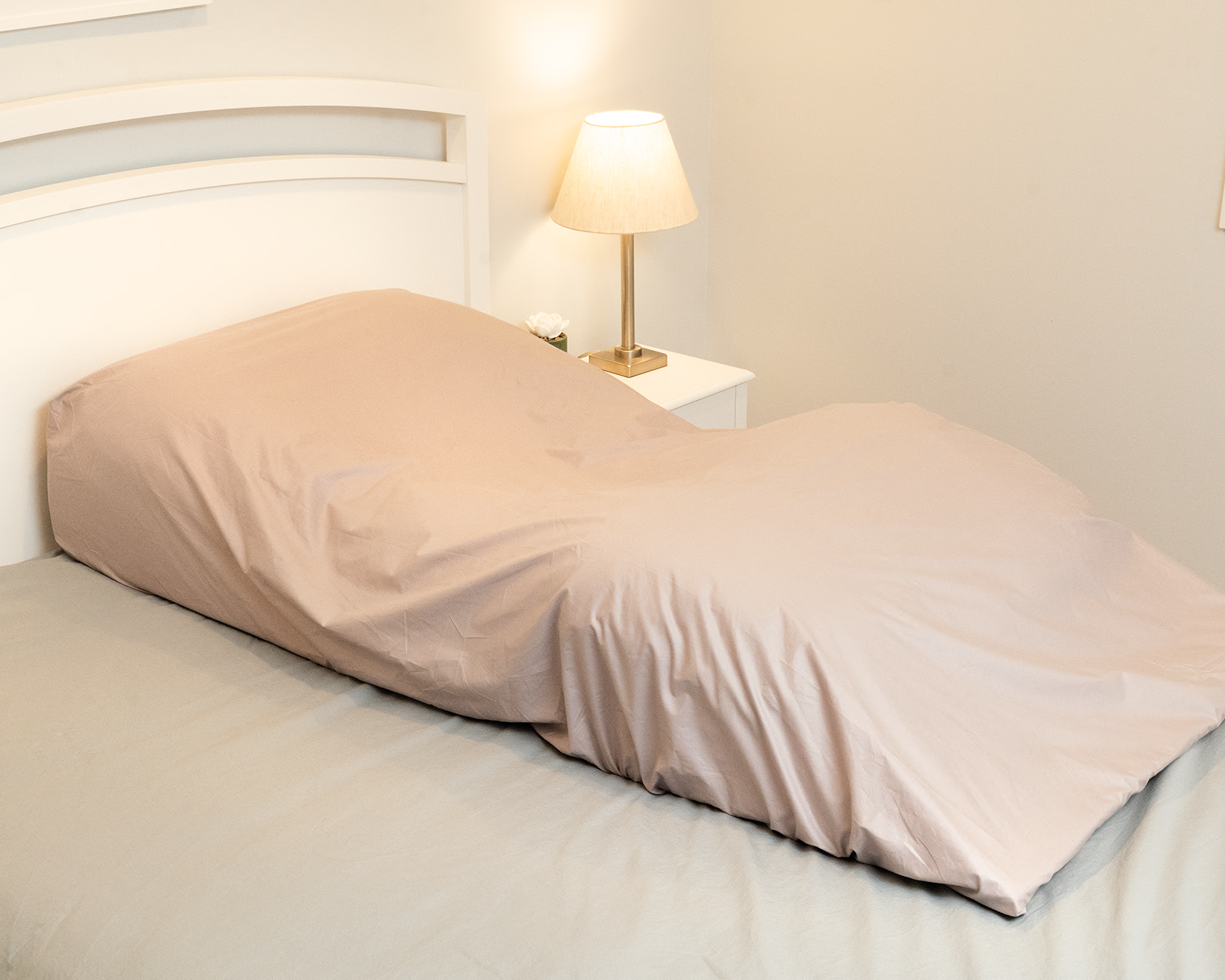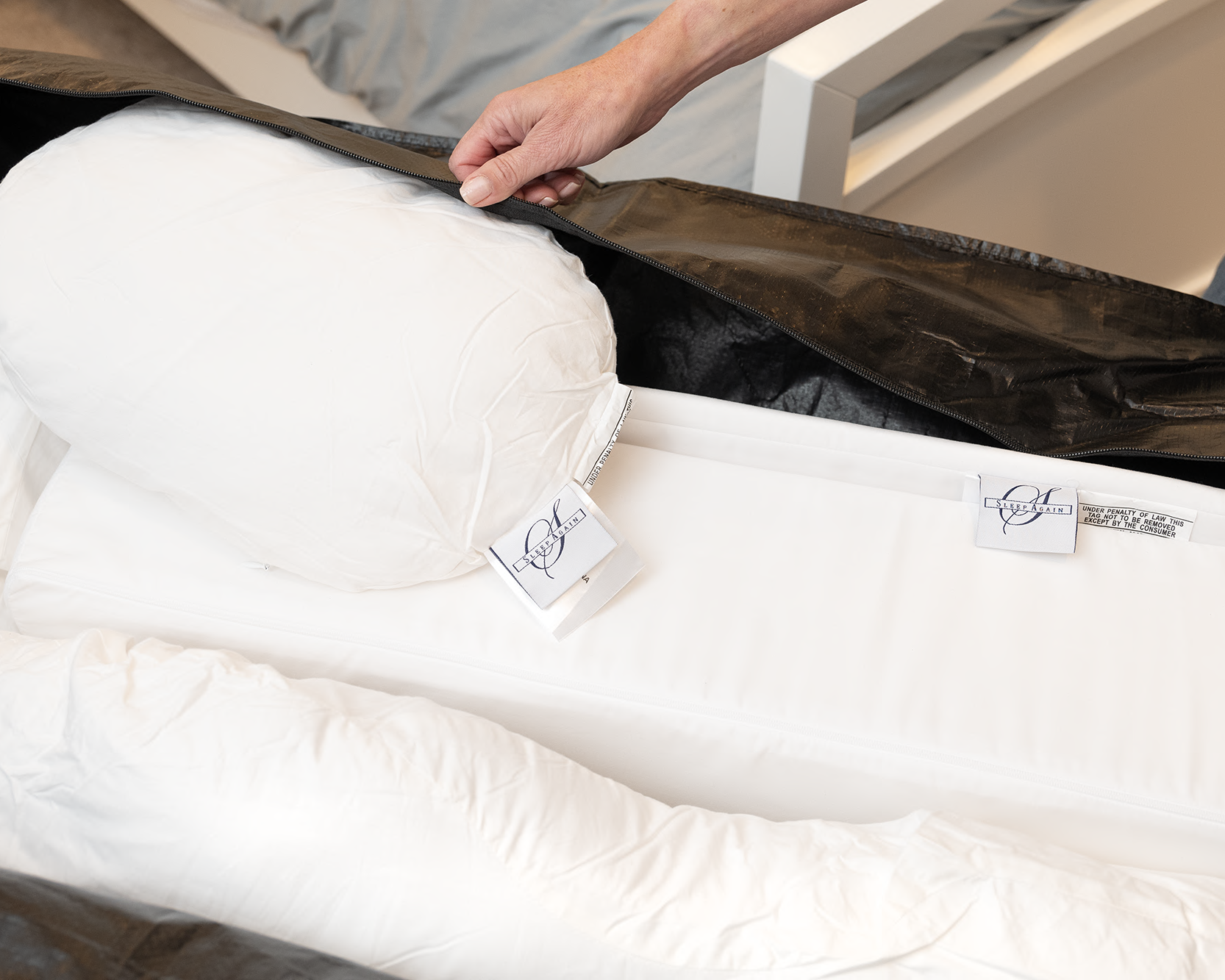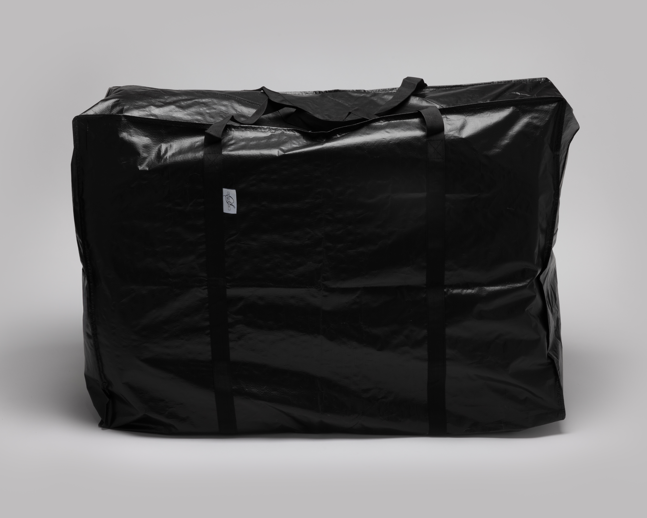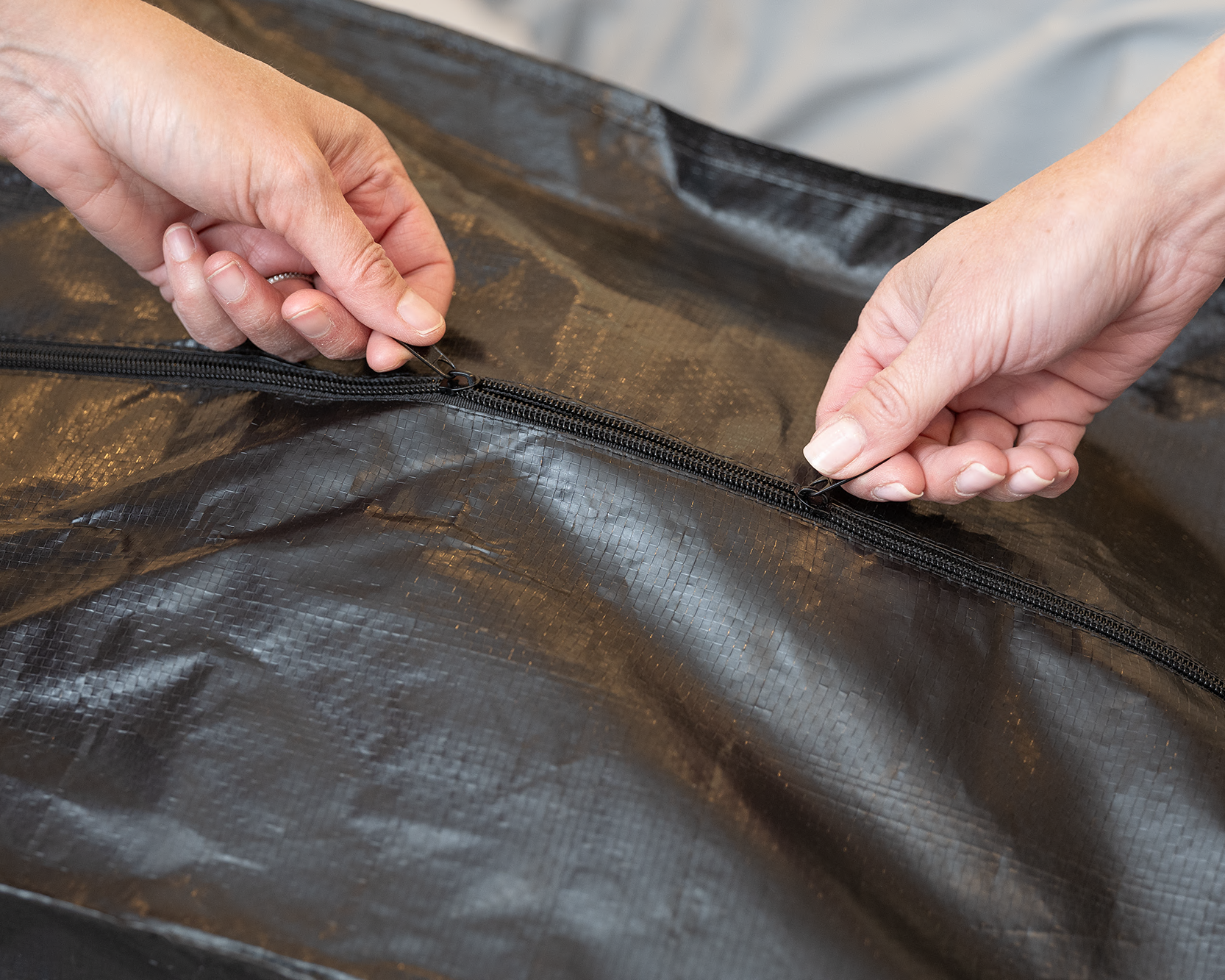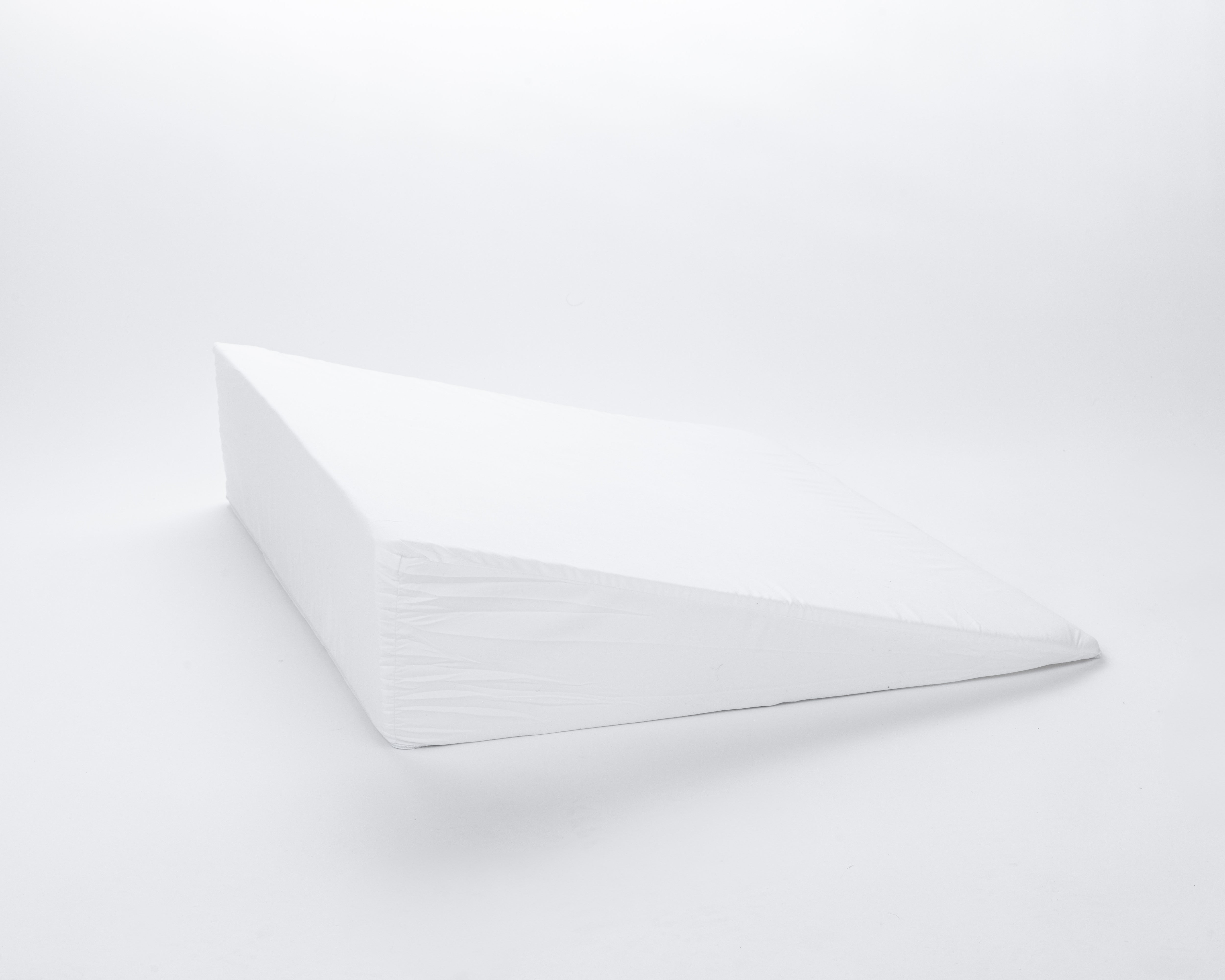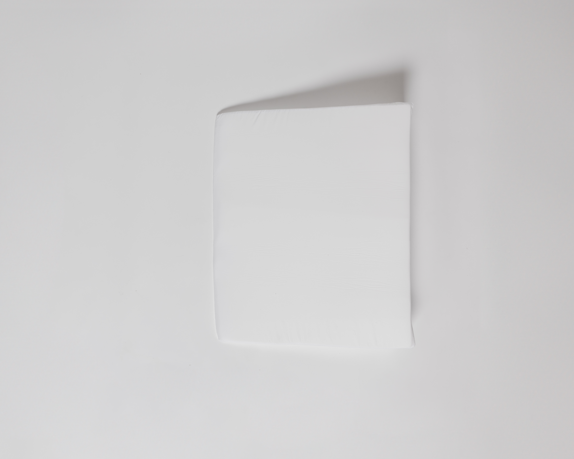Sleeping After Shoulder Surgery and Rotator Cuff Surgery Recovery Tips
Injuries to the rotator cuff are among the most common causes of shoulder pain today, resulting in over 460,000 surgeries each year. According to LifeSpan.org, as many as 3 million people in the United States may be living with a torn rotator cuff, many of them not even aware of their injury.
If you're preparing for shoulder surgery, rest and immobility of the affected shoulder will be among your best and quickest approaches to returning to the activities you love most. Understanding proper recovery techniques—especially how to sleep comfortably after shoulder surgery—can make a significant difference in your healing process and overall outcome.
What is the Rotator Cuff?
The shoulder is a complex group of interconnected muscles and tendons that work together to provide its normal full range of motion. It's also one of those critical muscle groups we use for everyday functioning that we tend not to notice until something hurts. We use our shoulders to grab things high out of reach, put on our coats and sweaters, throw a ball, and even simple tasks like brushing our teeth.
The rotator cuff itself consists of four muscles and their associated tendons that surround the shoulder joint. These muscles include:
-
Supraspinatus: Located at the top of the shoulder, this muscle helps lift your arm out to the side and maintains shoulder stability during arm movements.
-
Infraspinatus: Positioned on the back of the shoulder blade, this muscle helps with external rotation of the arm and shoulder stability.
-
Teres Minor: A smaller muscle located below the infraspinatus, it works with the infraspinatus for external rotation and stabilization.
Subscapularis: Found on the front of the shoulder blade, this muscle assists with internal rotation of the arm and helps keep the humeral head centered in the socket.
These muscles and tendons attach your arm bone (humerus) to your shoulder blade (scapula) and help to hold the ball of your upper arm firmly within the shallow socket of the shoulder. This unique structure allows for an incredible range of motion that no other joint in the body possesses. However, this mobility comes at a cost—the shoulder joint is inherently less stable than other joints, making it particularly prone to injuries.
The rotator cuff muscles work together not only to move the arm in various directions but also to stabilize the shoulder joint during movement. When any component of this intricate system is damaged, it can significantly impact both movement and comfort.

What Causes an Injury to the Rotator Cuff?
Most injuries are due to a degeneration of the shoulder muscles from using or overusing them over a period of time. An injury can also occur from an acute tear due to overextending the shoulder such during a fall or playing sports that involve increased use of the shoulder for throwing or reaching such as softball, baseball, or swimming.
Rotator cuff injuries generally fall into three categories:
1. Degenerative Tears
These are the most common type of rotator cuff injuries. They occur gradually over time due to:
-
Age-related degeneration: As we age, the blood supply to the rotator cuff tendons decreases, which impairs the body's natural ability to repair tendon damage, making tears more likely after age 40.
-
Repetitive stress: Activities that require repeatedly performing the same shoulder motions can strain the rotator cuff muscles and tendons.
-
Shoulder impingement: When the shoulder blade puts pressure on the underlying soft tissues when the arm is lifted.
-
Bone spurs: These can develop on the underside of the acromion bone and rub on the rotator cuff tendon, weakening it over time.
2. Acute Tears
These happen suddenly due to:
-
Falling on an outstretched arm
-
Lifting something too heavy with a jerking motion
-
Using the arm to break a fall
-
Sudden force to the shoulder during sports activities
3. Combination Tears
Many tears result from a combination of degenerative changes and acute injury. A weakened tendon can rupture during a seemingly minor injury or everyday activity.
Other risk factors that can contribute to rotator cuff injuries include:
-
Occupations that require repetitive overhead motions (painters, carpenters, electricians)
-
Certain sports (tennis, baseball, swimming, weightlifting)
-
Family history of rotator cuff problems
-
Poor posture which can impact shoulder mechanics
-
Smoking, which can decrease blood supply to the rotator cuff
-
Diabetes, which can impair healing of tendons

How Do You Know If You Have a Rotator Cuff Injury or Tear?
Pain or soreness is usually the initial indicator of an injury within the rotator cuff. The pain will most likely linger for an extended period, the muscle may feel weakened, there may be limited movement in the shoulder, and it may hurt to sleep on that side.
Common symptoms of rotator cuff injuries include:
-
Dull aching pain deep in the shoulder
-
Pain that worsens when lying on the affected shoulder
-
Pain when reaching overhead, behind your back, or lifting objects
-
Weakness when rotating your arm or lifting
-
Cracking or popping sounds when moving your shoulder
-
Limited range of motion
-
Shoulder stiffness
-
Difficulty performing routine activities such as combing hair, reaching into a back pocket, or fastening a bra
With acute tears, you might experience:
-
Sudden, intense pain
-
A snapping sensation in the shoulder
-
Immediate weakness in the arm
Interestingly, some rotator cuff tears can be asymptomatic, meaning they cause no pain or noticeable symptoms. This is more common in older adults and might only be discovered during imaging for another condition.

Types of Shoulder Surgeries
When conservative treatments such as physical therapy, rest, anti-inflammatory medications, or steroid injections don't resolve the issue, surgery may be recommended. There are several surgical approaches for rotator cuff injuries:
Arthroscopic Repair
This minimally invasive procedure involves inserting a tiny camera (arthroscope) and thin surgical instruments through small incisions around the shoulder. The surgeon views the inside of the shoulder on a monitor and repairs the damaged tissue.
Benefits:
-
Smaller incisions
-
Less pain after surgery
-
Lower infection risk
-
Shorter hospital stay
-
Quicker recovery time
Typical candidates: Patients with smaller or partial-thickness tears, or tears in otherwise healthy tissue.
Open Repair
In this traditional approach, the surgeon makes a larger incision (typically 2-3 inches) over the shoulder and detaches a portion of the deltoid muscle to access and repair the torn tendon.
Benefits:
-
Allows direct visualization of the tear
-
May be necessary for large or complex tears
-
Can address other shoulder problems simultaneously
Typical candidates: Patients with large, complex tears or significant shoulder problems beyond the rotator cuff.
Mini-Open Repair
This hybrid approach combines arthroscopic assessment with a small open incision (usually 3-5 cm) to repair the tear.
Benefits:
-
Less invasive than traditional open surgery
-
Allows for direct access to the tear
-
Less deltoid detachment than full open repair
Typical candidates: Patients with moderately sized tears that need more access than arthroscopy alone can provide.
Tendon Transfer
When a rotator cuff tear cannot be repaired directly, a nearby tendon may be used to replace the damaged tendon.
Benefits:
-
Can restore function when primary repair isn't possible
-
May help patients with otherwise irreparable tears
Typical candidates: Patients with massive, irreparable tears who still have functional deltoid muscles.
Shoulder Replacement
In severe cases involving both rotator cuff damage and advanced arthritis, a special type of shoulder replacement called reverse total shoulder arthroplasty may be recommended.
Benefits:
-
Can relieve pain and improve function when other treatments fail
-
Doesn't rely on the rotator cuff for movement
Typical candidates: Typically older patients with both rotator cuff tears and arthritis, or those with massive irreparable tears.

Shoulder Surgery Recovery Timeline
Diagnosis for a rotator cuff injury is often confirmed through an ultrasound, X-Ray, or MRI. If surgery is recommended, the recovery time can be lengthy and can take as long as 4 to 6 months. This can vary greatly depending on the extent of the injury, such as the severity of the tear, and the surgical approach recommended by your doctor.
Here's a more detailed timeline of what to expect during recovery:
Immediate Post-Surgery (0-2 Weeks)
-
Pain management is the primary focus
-
Immobilization of the shoulder with a sling or brace
-
Limited movement to protect the repair
-
Assistance needed for most daily activities
-
Sleep disturbances are common during this period
-
Wound care and watching for signs of infection
-
Gentle passive exercises may begin under supervision
Early Recovery (2-6 Weeks)
-
Continued sling use as directed by your surgeon
-
Beginning of passive range of motion exercises with a physical therapist
-
Gradual decrease in pain and discomfort
-
Continued limitations on lifting, pushing, and pulling
-
Learning to adapt to daily activities with limited shoulder use
-
Possible transition to sleeping more comfortably
Intermediate Recovery (6-12 Weeks)
-
Discontinuation of sling for most patients
-
Progression to active-assisted exercises
-
Gradual increase in range of motion
-
Beginning of gentle strengthening exercises
-
Increased independence in daily activities
-
Return to driving typically permitted (check with your surgeon)
-
Improved sleep quality as positioning becomes easier
Advanced Recovery (3-6 Months)
-
More intensive strengthening exercises
-
Continued improvement in range of motion
-
Return to light recreational activities
-
Gradual return to work (depending on physical demands)
-
Ongoing physical therapy to optimize outcomes
-
Reduced pain with increased activity tolerance
-
Improving shoulder mechanics and stability
Final Recovery Phase (6+ Months)
-
Return to most normal activities
-
Possible clearance for sports and more strenuous activities
-
Continued strengthening for optimal results
-
Adjustment to any permanent limitations (which vary by individual)
-
Focus on preventing re-injury through proper techniques
It's important to note that this timeline is general, and individual recovery can vary significantly based on:
-
Age and overall health
-
Size and location of the tear
-
Type of surgical procedure performed
-
Adherence to post-operative restrictions
-
Commitment to rehabilitation
-
Pre-existing shoulder conditions
-
Tissue quality
-
Smoking status (smoking significantly delays healing)
-
Presence of complications
Pre-Surgery Preparation
Proper preparation before your shoulder surgery can significantly improve your recovery experience. Here are some important steps to take:
Home Modifications
-
Rearrange frequently used items to be accessible with your non-dominant hand and without reaching
-
Install nightlights to help prevent falls during nighttime bathroom trips
-
Consider shower modifications like a shower chair or handheld showerhead
-
Prepare a recovery station with essentials (phone, remote, medications, water) within easy reach
-
Stock up on easy-to-prepare meals or prepare and freeze meals ahead of time
-
Arrange for help with household chores, pet care, and transportation
Sleeping Arrangements
-
Purchase supportive pillows like the Sleep Again Pillow System before surgery
-
Practice sleeping on your back if you're typically a side or stomach sleeper
-
Consider sleeping in a recliner or adjustable bed if available
-
Arrange pillows to prevent rolling onto the surgical shoulder
-
Test your setup for a few nights before surgery to make adjustments
Personal Care Preparation
-
Get button-up shirts that are easier to put on and remove
-
Consider slip-on shoes to avoid tying laces
-
Stock up on dry shampoo for the early recovery period
-
Practice one-handed techniques for daily activities
-
Consider adaptive equipment like long-handled sponges, reachers, or dressing aids
Medical Preparation
-
Complete all pre-operative testing as directed
-
Review and potentially adjust medications with your surgeon
-
Prepare a list of questions for your surgical team
-
Arrange transportation to and from surgery
-
Fill prescriptions ahead of time if possible
-
Understand your post-operative restrictions
Mental Preparation
-
Set realistic expectations about the recovery timeline
-
Plan activities that can be done one-handed during recovery
-
Line up support resources including friends, family, and possibly professional caregivers
-
Prepare for sleep disruption and consider relaxation techniques
-
Consider arranging for temporary help with childcare or other responsibilities

Sleeping After Shoulder Surgery
Sleeping after rotator or shoulder surgery can be challenging, especially if you're used to sleeping on your side. Sleeping on your back and in an elevated position can help reduce pain, swelling, and soreness, improve circulation, and take the stress off your healing injury.
Since the healing timeline for shoulder and rotator cuff surgery is especially long, between 4 to 6 months, a pillow for shoulder pain is a great investment to make sure you get the rest you need following your procedure. Even a moderate disruption in sleep can impact everything from your mood and energy levels to your body's ability to heal.
Optimal Sleeping Positions
Back Sleeping with Elevation
This is the most recommended position for post-shoulder surgery recovery:
-
Lie flat on your back with your head, neck, and spine aligned
-
Use a wedge pillow beneath your upper back and shoulders for elevation
-
Place a small pillow or rolled towel under your operative arm for support
-
Use additional pillows on both sides of your body to prevent rolling
-
Support your neck with an appropriate pillow that maintains proper alignment
Modified Side Sleeping (on unaffected side only)
If back sleeping is uncomfortable, you may be able to sleep on your unaffected side:
-
Lie on your non-operative side
-
Place 1-2 pillows in front of you to support your operative arm
-
Position your operative arm on these pillows to maintain neutral position
-
Place a pillow behind your back to prevent rolling backward
-
Keep your body slightly reclined at 30-45 degrees if possible
Recliner Sleeping
Many patients find sleeping in a recliner to be comfortable during the initial recovery period:
-
Adjust the recliner to approximately 45 degrees
-
Use pillows to support the operative arm
-
Ensure neck support to prevent strain
-
Keep the recliner locked in position to prevent unexpected movement

Using the Sleep Again Pillow System
The Sleep Again Pillow System is a post-surgery pillow uniquely designed to provide comfort and protection while you rest and sleep. Many surgery pillows include some form of wedge pillow as part of their design. The Sleep Again Pillow System includes 5 separate components, including 2 foam wedges, 2 full-body side pillows, and 1 neck pillow for maximizing both safety and comfort.
This allows the user to remain elevated and supported during restful activities such as reading or watching TV.
Its two full-body side pillows are extremely effective in preventing rolling while you sleep. This is huge for not accidentally slumping onto your side and potentially risking injury to your healing incisions.
"My nest of comfort" is how one of our customers describes her sleep experience. Read more client testimonials to see what others have to say.
Sleep Again Pillow System Setup for Shoulder Surgery Recovery:
Basic Back Sleeping Position:
-
Place one wedge behind your back to form a supportive incline
-
Place the second wedge under your knees to support your lower body
-
Place the two body pillows on either side to prevent rolling
-
Position the neck pillow at the top for proper cervical alignment
-
Lie on your back with your head on the neck pillow
TV/Reading Position:
-
Stack both wedges behind your back for maximum elevation
-
Use the body pillows to create arm supports on both sides
-
Position the neck pillow to maintain proper neck alignment
-
This position is ideal for daytime resting while remaining upright
Sleep Hygiene Tips After Shoulder Surgery
Beyond positioning, these sleep hygiene practices can improve rest quality during recovery:
-
Maintain a consistent sleep schedule even during recovery
-
Take pain medication 30-60 minutes before bedtime (as prescribed)
-
Use ice therapy before bed (according to your doctor's instructions)
-
Avoid screen time for at least 30 minutes before sleep
-
Create a cool, dark sleeping environment
-
Consider white noise to mask discomfort or disturbances
-
Practice relaxation techniques such as deep breathing or meditation
-
Avoid caffeine after noon
-
Limit daytime napping to 30 minutes or less
-
Incorporate gentle movement during the day (as approved by your medical team)
Pain Management Techniques
Effective pain management is crucial for both comfort and proper healing after shoulder surgery. Here are comprehensive approaches to managing post-surgical shoulder pain:
Pharmaceutical Pain Management
Always follow your surgeon's specific instructions regarding medication:
-
Prescription pain medications: For short-term use during the initial recovery phase
-
Non-steroidal anti-inflammatory drugs (NSAIDs): Help reduce inflammation and pain (check with your surgeon, as some prefer to avoid these initially)
-
Acetaminophen: Often used alongside or as an alternative to NSAIDs
-
Muscle relaxants: These may be prescribed for muscle spasms
-
Nerve pain medications: For specific nerve-related discomfort
-
Local anesthetic patches: Provide targeted relief for some patients
Medication Tips:
-
Take pain medication on a schedule rather than waiting for pain to intensify
-
Transition from prescription pain medications to over-the-counter options as soon as appropriate and directed
-
Always take medications with food unless otherwise instructed
-
Never exceed recommended dosages
-
Discuss any side effects promptly with your healthcare provider
-
Consider a medication tracking app to ensure proper timing and dosage
Non-Pharmaceutical Pain Management
These complementary approaches can enhance comfort and potentially reduce medication needs:
Cold Therapy
-
Use ice packs for 15-20 minutes every 2-3 hours during the first 72 hours
-
Always use a barrier (like a thin towel) between ice and skin
-
Commercial shoulder ice packs or cold therapy systems may provide more targeted relief
Heat Therapy (after initial inflammation period)
-
Only begin using heat when approved by your surgeon (typically after the first week)
-
Limit sessions to 20 minutes
-
Moist heat (like shower or bath, once permitted) may provide better relief than dry heat
Positioning and Support
-
Use pillows or the Sleep Again Pillow System to maintain optimal arm position
-
Change positions periodically to prevent stiffness
-
Ensure proper posture when sitting to reduce strain
Gentle Movement (as approved)
-
Perform approved pendulum exercises to reduce stiffness
-
Follow physical therapist recommendations precisely
-
Never push through sharp pain during exercises
Relaxation Techniques
-
Deep breathing exercises
-
Guided imagery or meditation
-
Progressive muscle relaxation (focusing on non-affected areas)
-
Mindfulness practices
Alternative Approaches
-
Transcutaneous Electrical Nerve Stimulation (TENS) units (with medical approval)
-
Acupressure (avoiding the surgical area)
-
Music therapy or distraction techniques
-
Aromatherapy with lavender or other calming scents
Nighttime Pain Management
Sleep disruption due to pain is common after shoulder surgery. These strategies may help:
-
Timing pain medication to provide maximum relief during sleeping hours
-
Gentle range of motion exercises before bed (if approved)
-
Applying ice 30 minutes before sleep
-
Using a pillow system that provides optimal support
-
Practicing relaxation techniques as part of a bedtime routine
-
Taking a warm shower (once permitted) before bed to relax muscles
-
Wearing loose, comfortable clothing that doesn't restrict or irritate
Daily Activities and Adaptations
Maintaining independence while protecting your healing shoulder requires adaptation. Here are strategies for common daily activities:
Dressing
-
Choose appropriate clothing: Button-front shirts, zip-up hoodies, elastic waistbands
-
Start with your surgical arm: When dressing, start with your affected arm first
-
Remove clothing from unaffected arm first: Reverse the process when undressing
-
Consider adaptive equipment: Dressing sticks, long-handled shoehorns, sock aids
-
Temporary clothing modifications: Consider temporarily removing sleeves from some shirts or using oversized items
Personal Hygiene
-
Bathing safely: Use washcloths for sponge bathing, shower chairs, or handheld showerheads
-
Hair care: Dry shampoo initially, then one-handed techniques or assistance
-
Dental care: Consider electric toothbrushes or adaptive handles
-
Toileting: Toilet paper aids if reaching is difficult
-
Hand washing: Pump soap dispensers instead of bar soap
Meal Preparation and Eating
-
Kitchen setup: Move frequently used items to accessible locations
-
One-handed techniques: Stabilize items with non-slip mats
-
Modified cutting: Use pizza cutters, kitchen scissors, or pre-cut foods
-
Opening packages: Keep jar openers, electric can openers accessible
-
Meal selection: Choose foods that require minimal preparation and cutting
Home Management
-
Cleaning adaptations: Long-handled dusters, lightweight vacuums
-
Laundry strategies: Small loads, front-loading machines
-
Making beds: Consider simplified bedding during recovery
-
Organization: Keep essential items within easy reach
-
Assistance planning: Schedule help for more demanding tasks
Communication and Entertainment
-
Phone use: Headsets or speaker options
-
Computer adaptations: Voice recognition software
-
Reading solutions: E-readers or book stands
-
Hobby modifications: Adapt favorite activities or explore new ones
-
Social connection: Plan regular interaction to prevent isolation
Getting In and Out of Bed
-
Sit on the edge of the bed with your legs hanging off
-
Lower yourself sideways using your unaffected arm for support
-
Bring your legs up onto the bed one at a time
-
Use your unaffected arm and core muscles to position yourself
-
Reverse this process when getting out of bed
Car Travel Adaptations
-
Passenger position: Recline the seat slightly and use a pillow for arm support
-
Seat belt use: Consider a padded cover for the shoulder strap
-
Entry technique: Back into the seat and swing legs in last
-
Extended trips: Take frequent breaks to prevent stiffness

Physical Therapy and Exercises
Physical therapy is an essential component of successful shoulder surgery recovery. Here's a more detailed look at what to expect:
Phase 1: Protection and Passive Motion (0-6 weeks)
During this initial phase, the focus is on protecting the surgical repair while preventing stiffness:
Passive Range of Motion Exercises (performed by a therapist or your unaffected arm):
-
Pendulum exercises: Bending at the waist, let your affected arm hang and gently swing in small circles
-
Supine external rotation: Lying on your back, use your unaffected arm to gently rotate your affected arm outward
-
Supine passive forward elevation: Using your unaffected arm to gently raise your affected arm overhead while lying on your back
-
Table slides: Sliding your hand on a table surface with minimal effort from shoulder muscles
Precautions during Phase 1:
-
No active use of the shoulder
-
No lifting, pushing, or pulling
-
No supporting body weight with affected arm
-
Maintain proper posture at all times
Phase 2: Active-Assisted Motion (6-12 weeks)
As healing progresses, gentle active movement is incorporated:
Active-Assisted Exercises:
-
Wand exercises: Using a cane or stick to guide your affected arm through range of motion
-
Wall walking: Facing a wall, "walk" your fingers up the wall to improve elevation
-
Pulley exercises: Using an over-door pulley system to assist shoulder movement
-
Active-assisted rotation: Beginning to use your own muscles with assistance
-
Scapular (shoulder blade) retraction and depression: Gentle squeezing of shoulder blades
Modalities that might be used in therapy:
-
Ultrasound to improve tissue healing
-
Electrical stimulation for pain management and muscle re-education
-
Manual therapy techniques to improve joint mobility
Phase 3: Strengthening (12+ weeks)
Once adequate healing and range of motion are established:
Strengthening Exercises:
-
Rotator cuff strengthening with light resistance bands or small weights
-
Scapular strengthening to improve shoulder blade control
-
Core and lower body exercises to improve overall function
-
Progressive resistance training as tissues continue to heal
-
Functional movement patterns that mimic daily activities and work requirements
Advanced Rehabilitation:
-
Proprioceptive exercises to improve positional awareness
-
Speed and agility drills for those returning to sports
-
Sport or work-specific training to ensure safe return to previous activities
-
Endurance training to prevent fatigue-related injuries
Home Exercise Program
Your physical therapist will design a home program that complements in-clinic sessions:
-
Exercise frequency: Typically 2-3 times daily
-
Duration: Usually 10-15 minutes per session
-
Intensity: Should cause fatigue but not significant pain
-
Progression: Exercises will advance as healing allows
-
Documentation: Keep a log of exercises and any symptoms
Signs of Proper vs. Improper Exercise
Positive signs that exercises are appropriate:
-
Mild fatigue during or after exercises
-
Temporary increase in soreness that resolves within a few hours
-
Gradual improvement in motion and function
-
Decreasing pain levels over time
Warning signs to discuss with your healthcare team:
-
Sharp or severe pain during exercises
-
Increased pain that persists more than a few hours
-
Swelling or warmth around the surgical site
-
Decreased range of motion
-
New clicking, catching, or grinding sensations
Nutrition and Lifestyle Factors for Optimal Healing
What you eat and how you live can significantly impact shoulder surgery recovery:
Nutrition for Tissue Repair
Protein:
-
Essential for tissue rebuilding
-
Aim for 1.2-2.0 grams per kilogram of body weight daily
-
Quality sources include lean meats, fish, eggs, dairy, legumes, and plant proteins
-
Consider spreading protein intake throughout the day
Anti-inflammatory Foods:
-
Fatty fish (salmon, mackerel) rich in omega-3 fatty acids
-
Colorful fruits and vegetables (berries, leafy greens, peppers)
-
Nuts and seeds (walnuts, flaxseeds)
-
Olive oil and avocados
-
Spices like turmeric and ginger
Vitamins and Minerals:
-
Vitamin C: Supports collagen formation (citrus fruits, peppers, strawberries)
-
Vitamin D: Aids in immune function and bone health (fortified dairy, fatty fish, sunshine)
-
Vitamin A: Supports immune function (orange vegetables, leafy greens)
-
Zinc: Crucial for wound healing (meat, shellfish, legumes, seeds)
-
Calcium: Supports bone health (dairy, fortified plant milks, leafy greens)
Hydration:
-
Aim for 2-3 liters of water daily
-
Limit caffeine and alcohol, which can be dehydrating
-
Observe urine color (pale yellow indicates good hydration)
Lifestyle Factors
Sleep Quality:
-
Prioritize consistent sleep-wake cycles
-
Create an optimal sleep environment
-
Use the Sleep Again Pillow System to maintain proper positioning
-
Consider tracking sleep quality to identify improvement opportunities
Stress Management:
-
Practice regular relaxation techniques
-
Consider mindfulness apps or guided meditation
-
Maintain social connections while recovering
-
Set realistic expectations for recovery timeline
Smoking Cessation:
-
Smoking significantly impairs tissue healing
-
Consider this a critical time to quit if you smoke
-
Discuss cessation strategies with your healthcare provider
-
Avoid secondhand smoke exposure
Alcohol Consumption:
-
Minimize alcohol, especially while taking medications
-
Be aware that alcohol can interfere with sleep quality
-
Discuss safe limits with your healthcare provider
Weight Management:
-
Maintain healthy weight to reduce stress on healing tissues
-
Focus on nutrient-dense foods rather than calorie restriction during healing
-
Stay active within medical restrictions
Complications and When to Contact Your Doctor
While most shoulder surgeries are successful, being aware of potential complications and warning signs is important:
Common Complications
Infection:
-
Redness, warmth, or increased swelling at the incision site
-
Fever over 100.4°F (38°C)
-
Increased pain not relieved by prescribed medication
-
Foul-smelling or colored drainage from incision
-
Increased fatigue or general malaise
Re-tear or Repair Failure:
-
Sudden increase in pain
-
New weakness in the shoulder
-
A popping or tearing sensation
-
Loss of previously gained motion or function
-
Return of pre-surgical symptoms
Frozen Shoulder (Adhesive Capsulitis):
-
Progressive stiffness and loss of motion
-
Pain that increases with movement attempts
-
Difficulty with previously achieved exercises
-
Increased pain at night
Nerve Injury:
-
Numbness or tingling in arm or hand
-
Weakness that doesn't improve or worsens
-
Burning pain down the arm
-
Loss of hand coordination
Blood Clots:
-
Swelling in arm, hand, or fingers that doesn't reduce with elevation
-
Unusual warmth or redness in arm
-
Pain or tenderness in arm not related to surgical site
-
Visible surface veins
When to Seek Immediate Medical Attention
Call 911 or go to emergency room for:
-
Difficulty breathing or chest pain
-
Severe, unbearable pain not responsive to medication
-
Complete loss of feeling in arm or hand
-
Signs of stroke (facial drooping, arm weakness, speech difficulties)
-
Signs of severe infection (high fever, confusion, severe pain)
When to Contact Your Surgeon's Office
Call within 24 hours for:
-
Persistent fever over 100.4°F
-
Increasing rather than decreasing pain
-
Incision issues (opening, drainage change, increased redness)
-
Inability to tolerate prescribed medication
-
Any new or unexpected symptoms
Questions to Ask at Follow-up Appointments
Early Recovery:
-
How is my healing progressing compared to expectations?
-
When can I expect to transition to the next recovery phase?
-
Are there any modifications needed to my exercise program?
-
Should I be progressing to less pain medication?
Mid Recovery:
-
What activities can I safely add back into my routine?
-
What is the plan for strengthening my shoulder?
-
Are there any warning signs I should watch for as activity increases?
-
How can I prevent complications as I become more active?
Late Recovery:
-
What long-term precautions should I take with my shoulder?
-
Are there any activities I should permanently modify or avoid?
-
What maintenance exercises should I continue long-term?
-
What should I do if I notice symptoms returning?
Frequently Asked Questions About Shoulder Surgery Recovery
General Recovery Questions
Q: How long will I need to wear a sling?
A: Most patients wear a sling for 4-6 weeks following rotator cuff repair. The exact duration depends on the extent of your repair and your surgeon's protocol. Some surgeons may allow you to remove it for certain activities or exercises earlier than others.
Q: When can I drive again?
A: Most patients can resume driving when they're no longer taking narcotic pain medication, have adequate range of motion, and have sufficient strength to control the steering wheel safely—typically around 6 weeks after surgery for repairs on the right shoulder and potentially earlier for left shoulder repairs (for those who drive left-hand drive vehicles).
Q: When can I return to work?
A: This varies greatly depending on your job requirements:
-
Desk jobs with limited arm use: Possibly 1-2 weeks
-
Jobs requiring moderate arm use: Typically 6-12 weeks
-
Heavy labor or overhead work: 4-6 months or longer Always get specific clearance from your surgeon before returning to work.
Q: Will physical therapy be painful?
A: Some discomfort during therapy is normal, but you should not experience severe pain. Your therapist will work within your comfort level. Communication about your pain levels is essential for appropriate progression.
Sleep-Related Questions
Q: How long will I need to sleep in an elevated position?
A: Most patients find sleeping elevated helpful for the first 4-6 weeks. You may gradually transition to a flatter position as comfort allows, but some patients prefer elevation for several months.
Q: Can I ever sleep on my side again?
A: Yes, most patients can eventually return to sleeping on either side, but you may find back sleeping is more comfortable and better for overall sleep quality in the long term. Sleeping on the unaffected side is typically possible around 6-8 weeks post-surgery with proper pillow support. Sleeping on the surgical side usually becomes comfortable around 3-4 months post-surgery.
Q: Is the Sleep Again Pillow System worth the investment for temporary use?
A: While your recovery needs are temporary, many patients find significant value in the Sleep Again Pillow System beyond recovery. The system can be used for general comfort, other health conditions requiring elevation, or by family members. Proper sleep positioning during recovery is crucial for healing and can potentially prevent complications that might extend your recovery time.
Q: What if I accidentally roll onto my surgical shoulder during sleep?
A: This is a common concern. Using the Sleep Again Pillow System's body pillows creates a physical barrier to prevent rolling. If you do accidentally roll onto your surgical shoulder, you'll likely wake up from discomfort. While a single instance is unlikely to cause serious damage to your repair, consistent proper positioning is important for optimal healing.
Pain Management Questions
Q: How long will I need pain medication?
A: Most patients use prescription pain medication for 1-2 weeks following surgery, then transition to over-the-counter options. Everyone's experience is different, and you should follow your surgeon's guidance regarding pain management.
Q: Is it normal for pain to increase during recovery?
A: While overall pain should gradually decrease, temporary increases in discomfort can occur when:
-
Beginning new exercises
-
Increasing activity levels
-
Reducing pain medication
-
Weather changes (for some patients) Any sudden, severe increase in pain should be reported to your healthcare provider.
Q: How do I manage nighttime pain?
A: Nighttime pain can be managed by:
-
Taking pain medication 30-60 minutes before bedtime
-
Using ice before sleep (as directed)
-
Ensuring proper positioning with supportive pillows
-
Performing gentle approved exercises to reduce stiffness
-
Practicing relaxation techniques
Exercise and Activity Questions
Q: When can I start strengthening my shoulder?
A: Formal strengthening typically begins around 12 weeks post-surgery, though this varies based on your specific procedure and healing progress. Your physical therapist and surgeon will determine when you're ready to begin strengthening safely.
Q: Can I exercise other body parts while recovering?
A: Yes, maintaining overall fitness is beneficial. Options include:
-
Walking (once cleared by your surgeon)
-
Lower body exercises while protecting the surgical arm
-
Modified core exercises that don't strain the shoulder
-
Non-impact cardio (stationary bike, eventually elliptical) Always get your surgeon's approval before beginning any exercise program.
Q: Will my shoulder ever be normal again?
A: Most patients experience significant improvement in pain and function following rotator cuff surgery. However, complete return to pre-injury status varies based on:
-
The extent of the original tear
-
Tissue quality
-
Age
-
Adherence to the rehabilitation program
-
Pre-existing shoulder conditions Your surgeon can provide expectations specific to your situation.
Shoulder Surgery Recovery Tips
Avoid sleeping on your shoulder and use a wedge pillow for elevation.
-
After shoulder surgery, it's important to lay on your back while resting or sleeping to avoid strain on the affected injury. Sleeping in a slightly elevated position will not only improve circulation but can also reduce pain, provide greater comfort, and promote healing.
Wear your shoulder sling as recommended by your doctor.
-
It's critical that you limit your shoulder movement following shoulder surgery or you may risk injury to the repaired area. Plan on keeping this arm immobile for the first 4-6 weeks following your procedure.
Be mindful of ordinary activity that could cause injury.
-
Lifting heavy objects, putting weight on your shoulder, raising your arm, and reaching - all of it should be avoided during this healing phase.
Attend physical therapy.
-
A physical therapist can work with you to identify and work on stretches and light exercises that will help ease your pain and strengthen your repaired shoulder to help bring back a better range of motion.
Ask the important questions before your shoulder surgery.
-
Should you use ice or heat? When should you change your dressings? What should you wear for ease of comfort? Can you bathe? What level of pain should you expect? These are all things to ask your doctor or surgeon in advance to better anticipate your overall recovery experience.
Additional Recovery Tips
Communication with Your Healthcare Team
-
Keep a recovery journal: Track pain levels, medication usage, exercise performance, and questions
-
Take photos of your incision: This can help you monitor healing and share concerns with your doctor
-
Prepare questions before appointments: Make the most of limited appointment time
-
Consider a patient advocate: Having someone accompany you to appointments can help ensure information is understood and remembered
Mental Health During Recovery
-
Set realistic expectations: Recovery is typically measured in months, not weeks
-
Celebrate small victories: Acknowledge improvements, however minor they seem
-
Stay socially connected: Isolation can contribute to depression during recovery
-
Consider counseling: If you're struggling with the emotional aspects of recovery
-
Engage in pleasant activities: Find modified ways to continue hobbies and interests
Environmental Modifications
-
Rearrange furniture: Create clear pathways to prevent bumping the affected arm
-
Use technology: Voice assistants can help control lighting, answer questions, etc.
-
Shower chair: Prevents falls and conserves energy during bathing
-
Grab bars: Provide stability in bathrooms and other areas
-
Reaching tools: Extend your reach without straining your shoulder
Long-Term Shoulder Health
-
Maintain good posture: Poor posture places additional stress on shoulder structures
-
Stay consistent with maintenance exercises: Even after formal therapy ends
-
Be mindful of shoulder mechanics: Proper lifting techniques protect your repair
-
Address pain promptly: Early intervention for new symptoms can prevent complications
-
Consider periodic "tune-up" therapy sessions: Especially before returning to seasonal activities
Conclusion
Recovering from shoulder surgery is a journey that requires patience, dedication, and proper support. While the process may seem lengthy and challenging, following your medical team's guidance and using appropriate tools like the Sleep Again Pillow System can significantly improve your comfort and recovery outcomes.
Remember that proper sleep positioning is one of the most crucial elements of successful recovery. The 4-6 month healing period represents a relatively short time in your overall life but can have long-lasting impacts on your shoulder function for years to come.
By creating an optimal healing environment—particularly during sleep when your body does much of its repair work—you're giving yourself the best chance for a complete and successful recovery. The investment in proper positioning tools, adherence to activity restrictions, and commitment to your rehabilitation program will pay dividends in restored function and reduced pain.
If you're preparing for shoulder surgery, we wish you the best on your recovery journey and hope these tips help make your path to healing as smooth and comfortable as possible.


